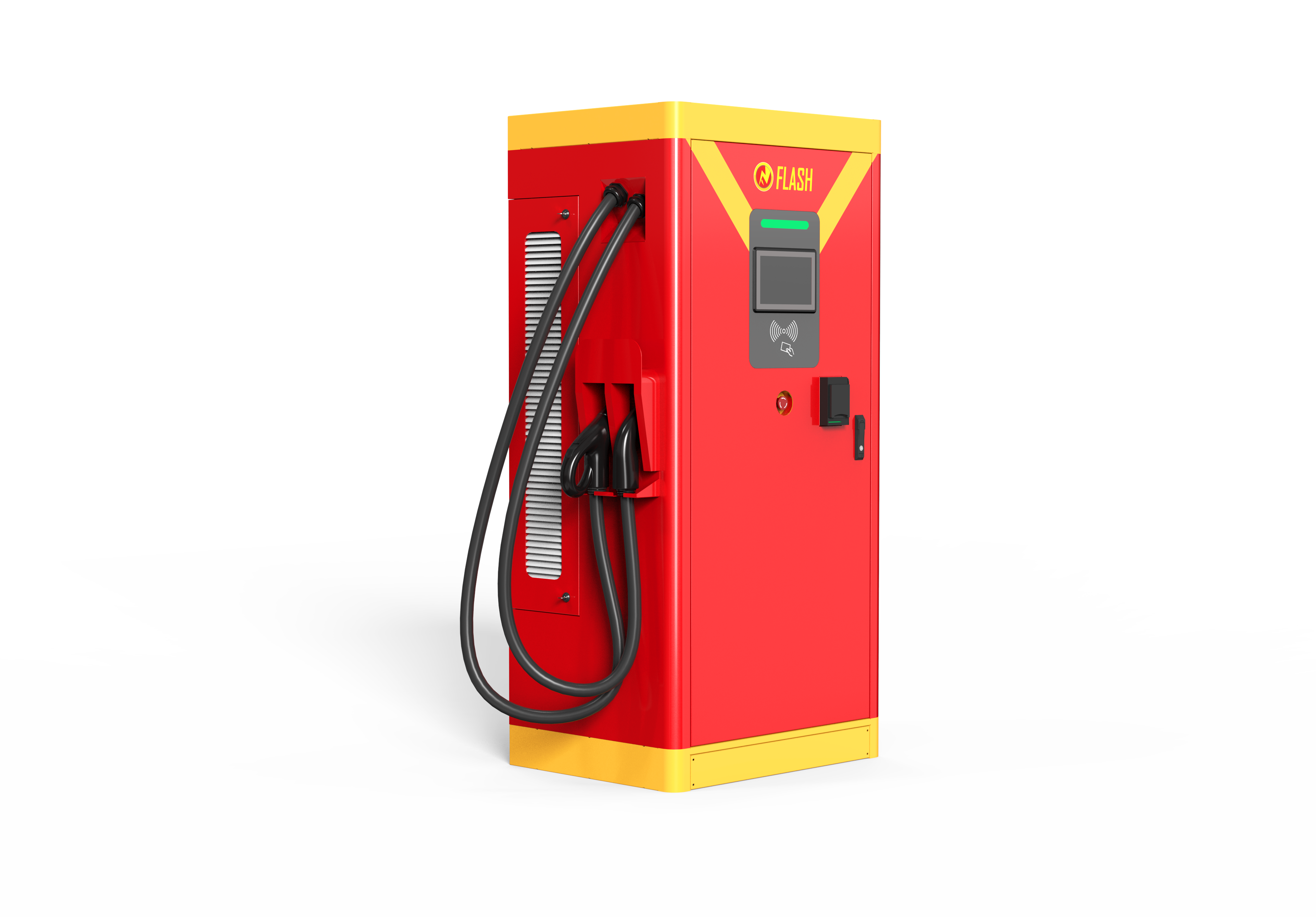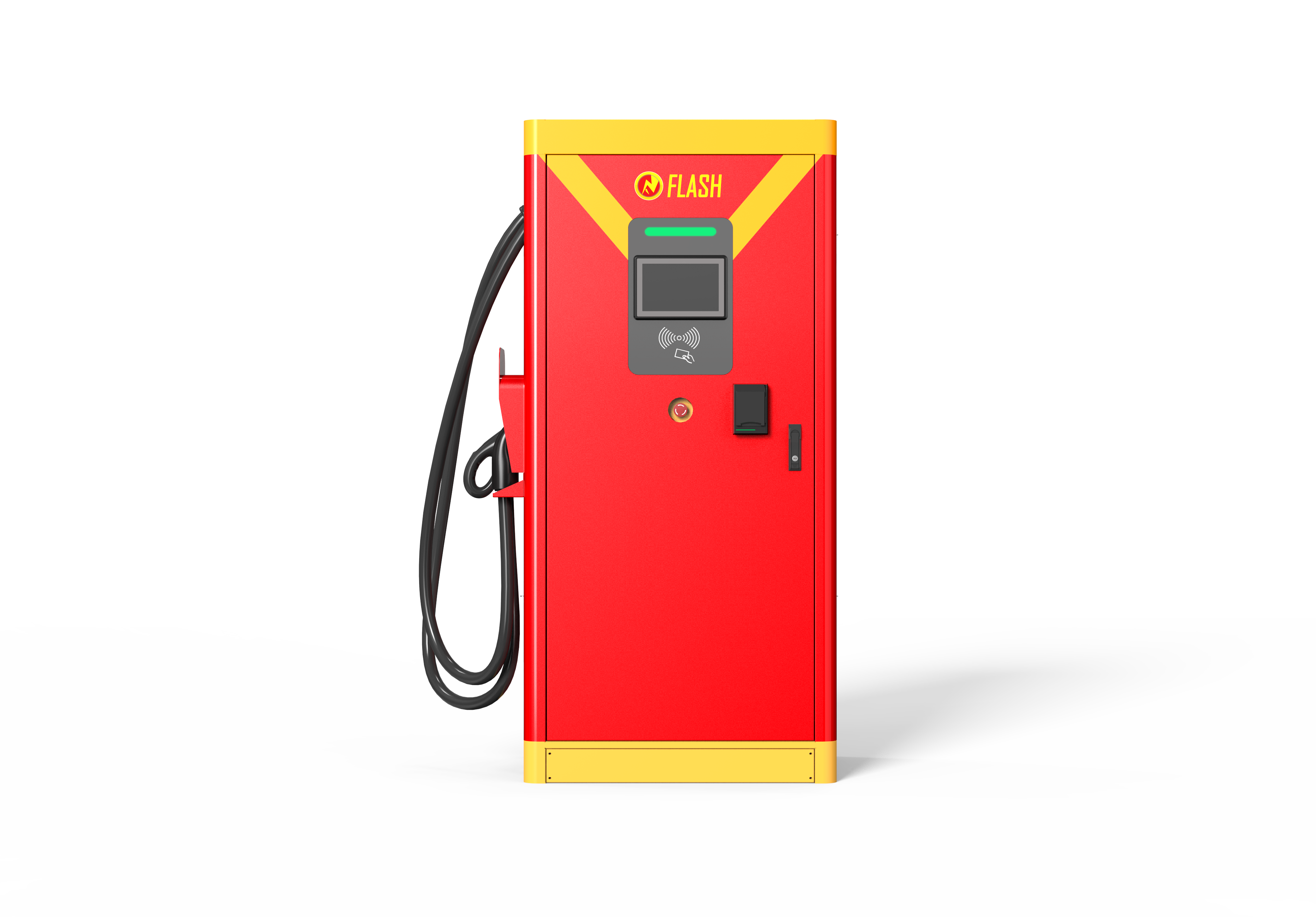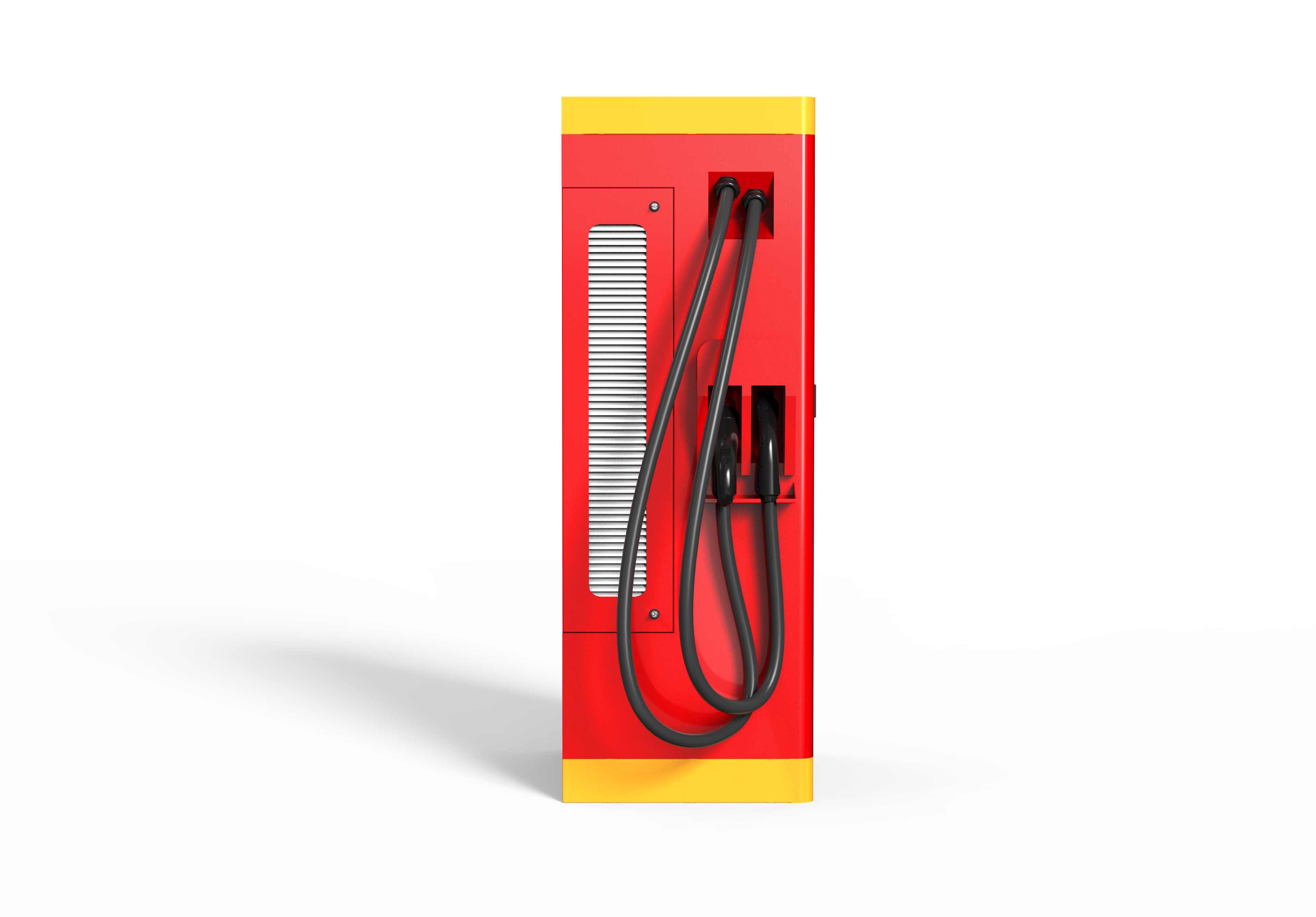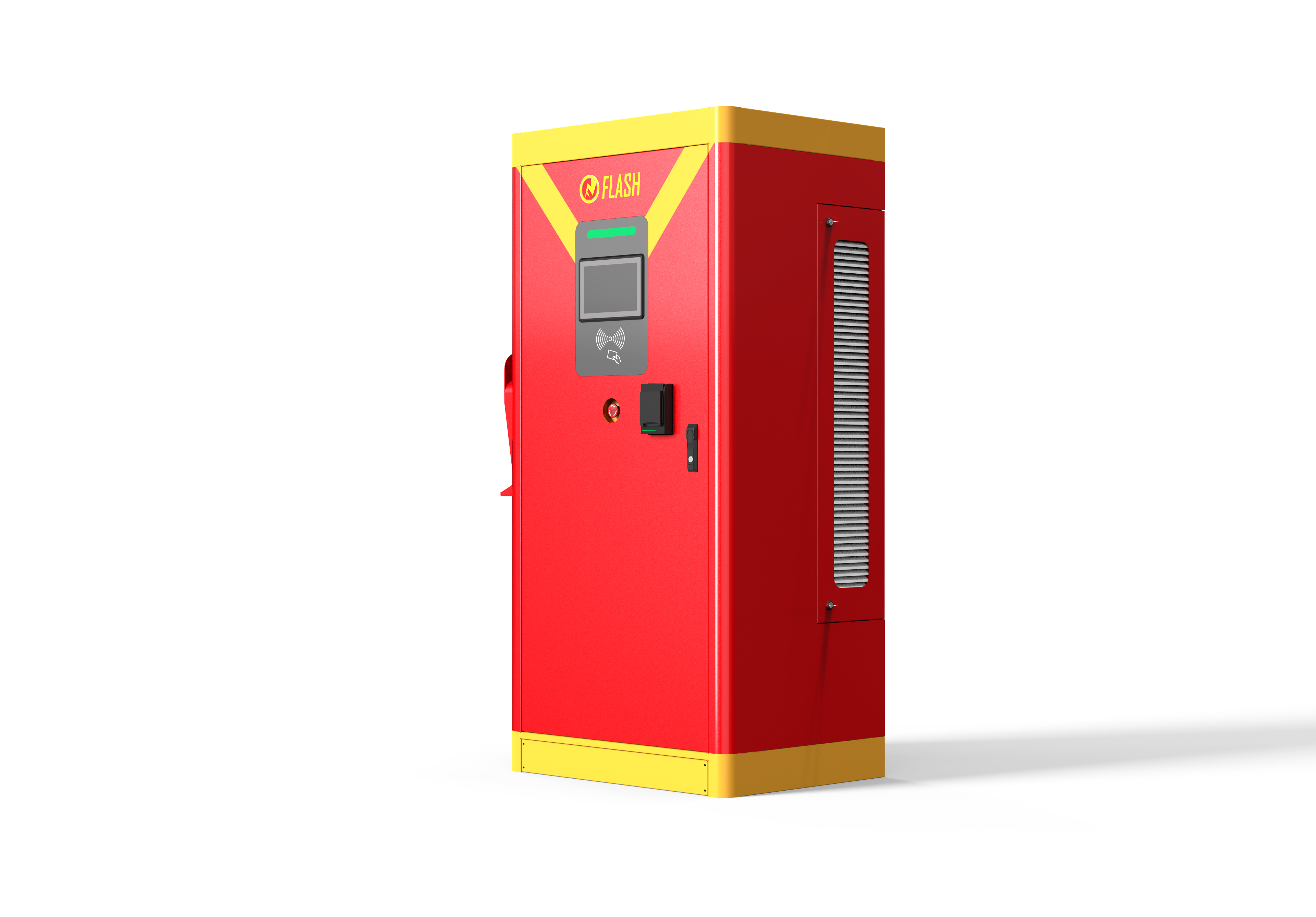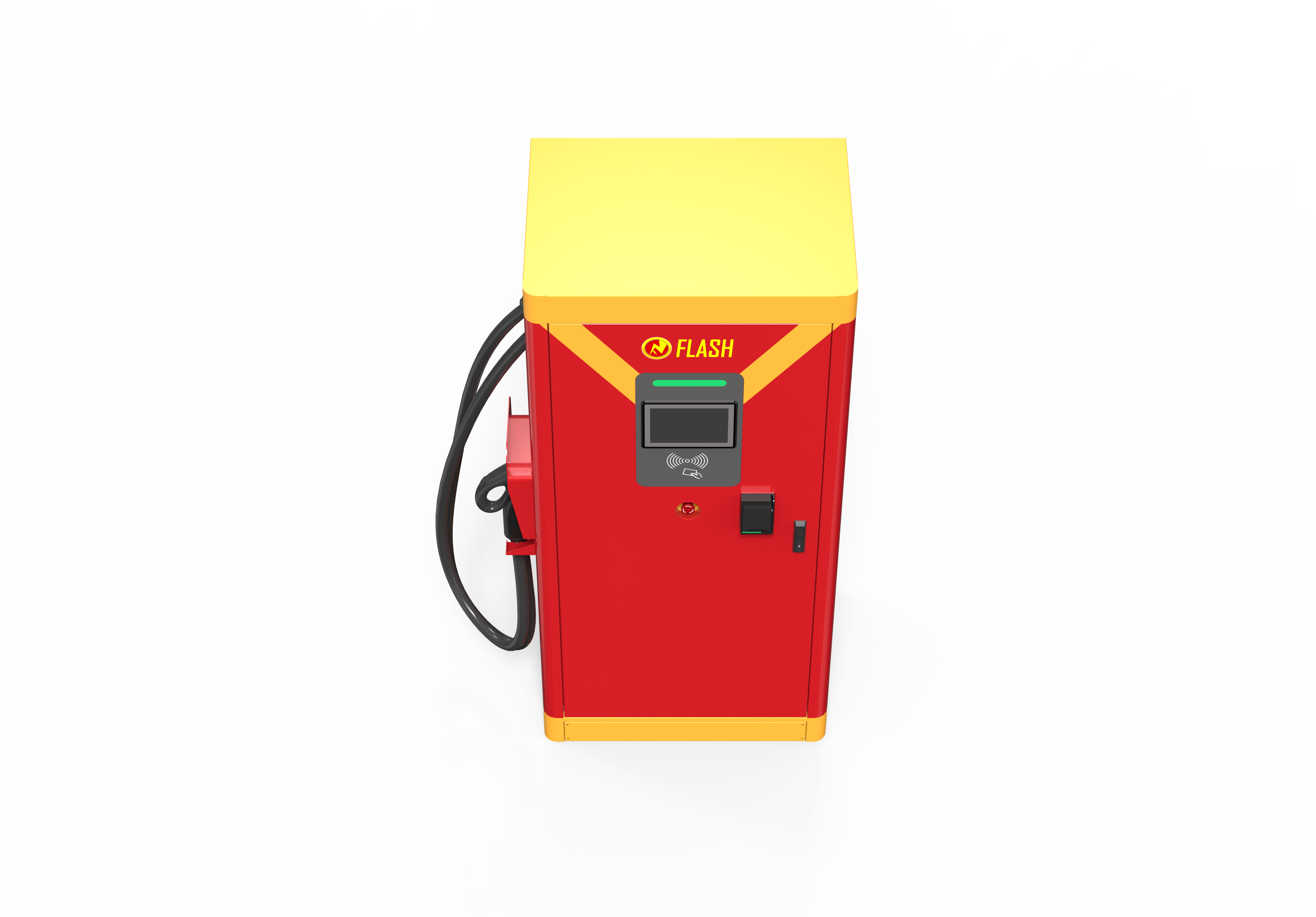Every year, EVs with larger storage battery capacity are sold, and even with quick chargers, charging time takes longer.
In addition, with the existing billing system, monthly membership fees must be paid each month in order to use the service.
The electricity rate paid to the installer is also fixed and generates little or no revenue.
Many chargers charge per hour or per charge.
Therefore, charging with a 20kW charger is the same as charging with a 50kW charger, resulting in inequity.
FLASH breaks the mold for such EV chargers.
We have created a system that is pleasing to both users and installers.
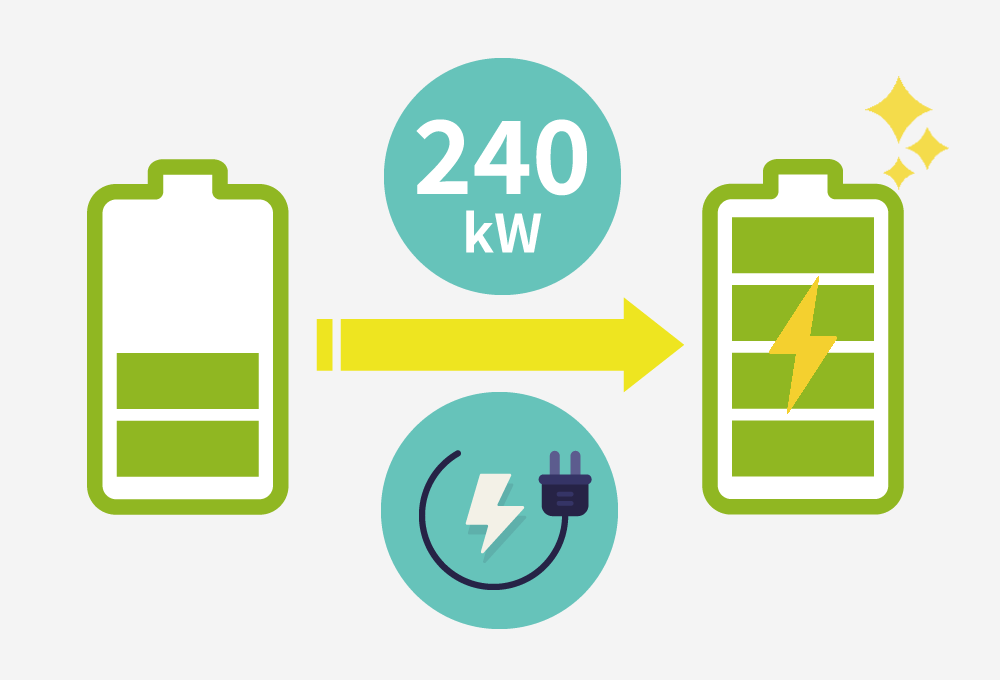
Largest output of 240 kW in Japan*Maximum output per unit
In recent years, the battery capacity of electric vehicles has been increasing. In response to this trend, FLASH has achieved one of the largest outputs in Japan, 240 kW. This significantly reduces the waiting time for electric vehicle owners.
*FLASH MARK.Ⅲ has an output of 180 kW.

Pay-as-you-go system
While previous EV chargers were based on a per-charge model, charging by the hour, FLASH uses a per-kW pay-as-you-go model, which also allows installers to make a profit.
*Metered billing system for charging using a certified meter.
The amount of power used and the amount of power charged will differ due to transmission and conversion losses.
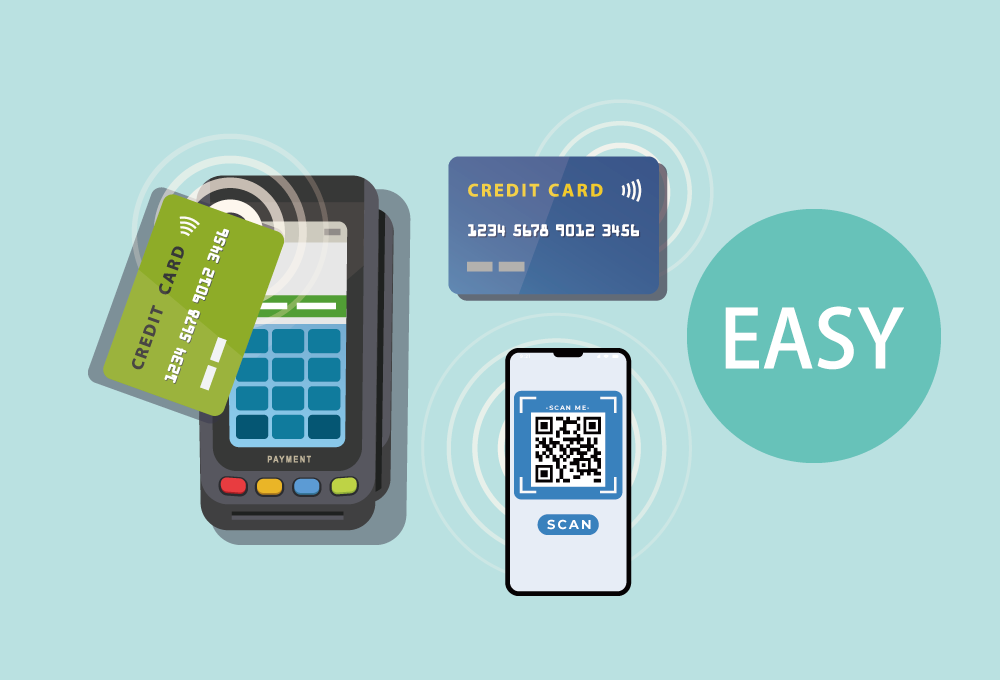
Payment by credit card and QR code
FLASH does not require any prior registration, and payment can be made by credit card or QR code. This eliminates the need to create a recharging card to use the charger, much like a conventional gas station.

